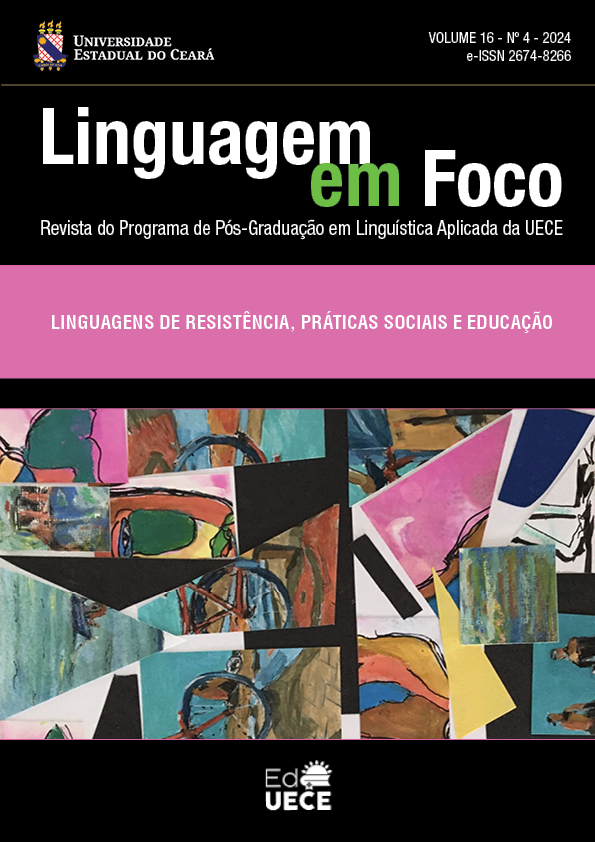Teacher Education in Ghana
the past, present and the future
DOI:
https://doi.org/10.46230/lef.v16i4.15209Palavras-chave:
teacher education, trajectory, ghanaResumo
Teacher education is recognized as a vital component for the socio economic development of every country. This is because the academic and professional standards of teachers constitute a critical component of the essential learning conditions for achieving the educational go- als of a nation. Being aware of these, Ghana embraced teacher edu- cation and the sector has since evolved. However, the development in Ghana’s teacher education sector has not been mapped, analysed, synthesised and shared with the scholarly community in a single pa- per. This paper critically reviews literature (reports, policy texts, working papers, government documents and statistical data from government agencies) on the most significant developments in Ghana’s teacher education from past to the present and prescribe the desired teacher education for the future.
Downloads
Referências
Abduljabbar, O.A. & Dauda, S. (2022). Teacher Education and National Development:The Nigerian and Zambian Experience. Zamfara Journal of Politics and Development, 3(3), 1-12.
Abukari, A. (2007). Financing basic teacher education in Ghana: looking beyond traditional funding sources. Middlesex University Occasional papers in Education and Lifelong Learning, 1 (1). pp. 27-43
Acheampong, K. & Furlong, D. (2000). Discussion Paper 7. Ghana: a Baseline Study of the Teacher Education System. Available on https://www.semanticscholar.org/paper/Discussion-Paper-7.-Ghana%3A-a-Baseline-Study-of-the-Akyeampong-Furlong/86509bb23d359014ced661ff29093ff2b3fb7cbf
Adegoke, K. A. (2003). Capacity Building of Lead Teacher Training Institutions in Sub-Saharan Africa: Ghana, UNESCO sponsored project-4500007474.
African Union (2019). African Teacher Qualification Framework: For Teacher Quality, Comparability and International Mobility. Addis Ababa: African Union.
African Union (2015). Continental Education Strategy for Africa (16-25). Addis Ababa: African Union.
Amofah, J. (2022). Challenges of 2022 Postings of Newly Trained Teachers and the Way Forward. Available on https://www.modernghana.com/news/1140712/challenges-of-2022-postings-of-newly-trained-teach.html
Ansah, F., & Swanzy, P. (2019). Affiliation policy rhetoric and reality in the Ghanaian higher education context. Journal of Higher Education Policy and Management, 41(2), 204-218. https://doi.org/10.1080/1360080X.2019.1575176 DOI: https://doi.org/10.1080/1360080X.2019.1575176
Ansah, F., Swanzy, P., & Obeng, R. A. (2019). No PhD, no tenure policy – Is it the best way forward? University World News.
https://www.universityworldnews.com/post.php?story=20190103090808316
Bernasconi, A.S. (2006). Does the affiliation of universities to external organizations foster diversity in private higher education? Chile in comparative perspective. Higher Education, 52, 303–342. doi:10.1007/s10734-004-5326-8 DOI: https://doi.org/10.1007/s10734-004-5326-8
GhanaDistricts. (2024). GhanaDistricts: A resource base for all local assemblies in Ghana. Available on https://www.ghanadistricts.com/
Ghana National Service Scheme (2024). About us. Available on https://www.nss.gov.gh/
Ghana Tertiary Education Commission. (2019). Roadmaps to Accreditation: Revised. Accra: Ghana Tertiary Education Commission
Jamal, N. (2022). Meaning, Nature and Scope of Teacher Education. Patna: Maulana Mazharul Haque Arabic and Persian University.
Kanayo V.A (2012). Preparing teachers for a changing world. Unpublished seminar paper Imo state university Owerri.
Kuhlee, D. (2017). The Impact of the Bologna Reform on Teacher Education in Germany: An Empirical Case Study on Policy Borrowing in Education. Research in Comparative & International Education, 12(3), 299–317. DOI: https://doi.org/10.1177/1745499917730733
Lavonen, J. (2020). Curriculum and Teacher Education Reforms in Finland That Support the Development of Competences for the Twenty-First Century. In F. M. Reimers (Ed.), Audacious Education Purposes: How Governments Transform the Goals of Education Systems (pp. 65-80). Cham, Switzerland: Springer Nature. DOI: https://doi.org/10.1007/978-3-030-41882-3_3
McWilliams, H.O.A. & Kwamena-Poh, M.A. (1975). The Development of Education in Ghana. London: Longman Group.
Rieckmann, M. (2019). Education for Sustainable Development in Teacher Education. An International Perspective. In S. Lahiri, (ed.), Environmental Education (pp. 33–48). Delhi: Studera Press.
Republic of Ghana. (2022). Education Budget Brief 2023. Accra: GOG
Sanyal, B.C. (2013). Quality assurance of teacher education in Africa. Addis Ababa: UNESCO- IICBA.
Swanzy, P. (2016). Quality assurance in ghanaian polytehnics: Perspectives and strategies of rectors, vice rectors and quality assurance officers. (Doctor of Philosophy Dissertation), University of Adelaide, Adelaide.
Swanzy, P. & Kwasi-Agyeman, F. (2023). Mapping Key Facts of Ghana’s Higher Education System. In B. Daniel & R. Bisaso (Eds), Higher Education in SubSaharan Africa in the 21st Century – Pedagogy, Research and Community-Engagement (pp. 183-204). Singapore: Springer DOI: https://doi.org/10.1007/978-981-99-3212-2_11
Transforming Teaching Education and Learning. (2024). Knowledge Hub: B.Ed. Resources. Accra: T-TEL.
United Nations Development Programme. (2012). 2010 Ghana Millennium Development Goals Report. Accra: UNDP/NDPC/GOG.
UNESCO. (2024). Education for Sustainable Development. Available on https://www.unesco.org/en/sustainable-development/education
World Bank. (2015). Countries and Economies. Retrieved on 2nd Jan, 2024 at http://data.worldbank.org/country.
Downloads
Publicado
Como Citar
Edição
Seção
Licença
Copyright (c) 2025 Patrick Swanzy , Sandra Maria Gadelha de Carvalho, José Ernandi Mendes Mendes

Este trabalho está licenciado sob uma licença Creative Commons Attribution 4.0 International License.
Os autores que publicam na Linguagem em Foco concordam com os seguintes termos:
- Os autores mantêm os direitos autorais e concedem à revista o direito de primeira publicação. Os artigos estão simultaneamente licenciados sob a Creative Commons Attribution License que permite a partilha do trabalho com reconhecimento da sua autoria e da publicação inicial nesta revista.
- Os conceitos emitidos em artigos assinados são de absoluta e exclusiva responsabilidade de seus autores. Para tanto, solicitamos uma Declaração de Direito Autoral, que deve ser submetido junto ao manuscrito como Documento Suplementar.
- Os autores têm autorização para disponibilizar a versão do texto publicada na Linguagem em Foco em repositórios institucionais ou outras plataformas de distribuição de trabalhos acadêmicos (ex. ResearchGate, Academia.edu).





























